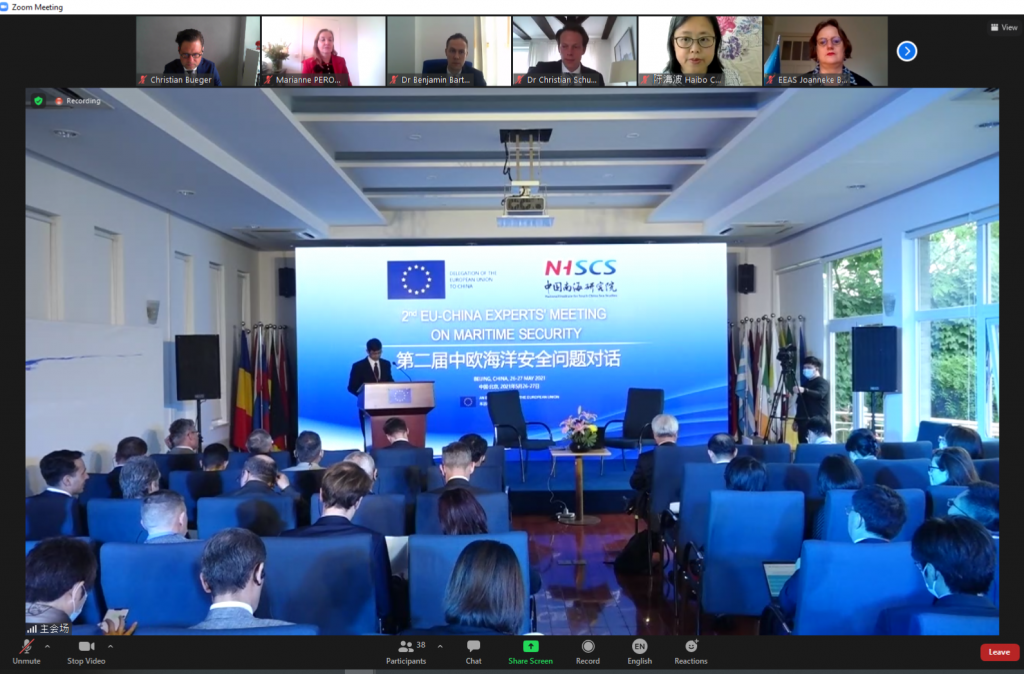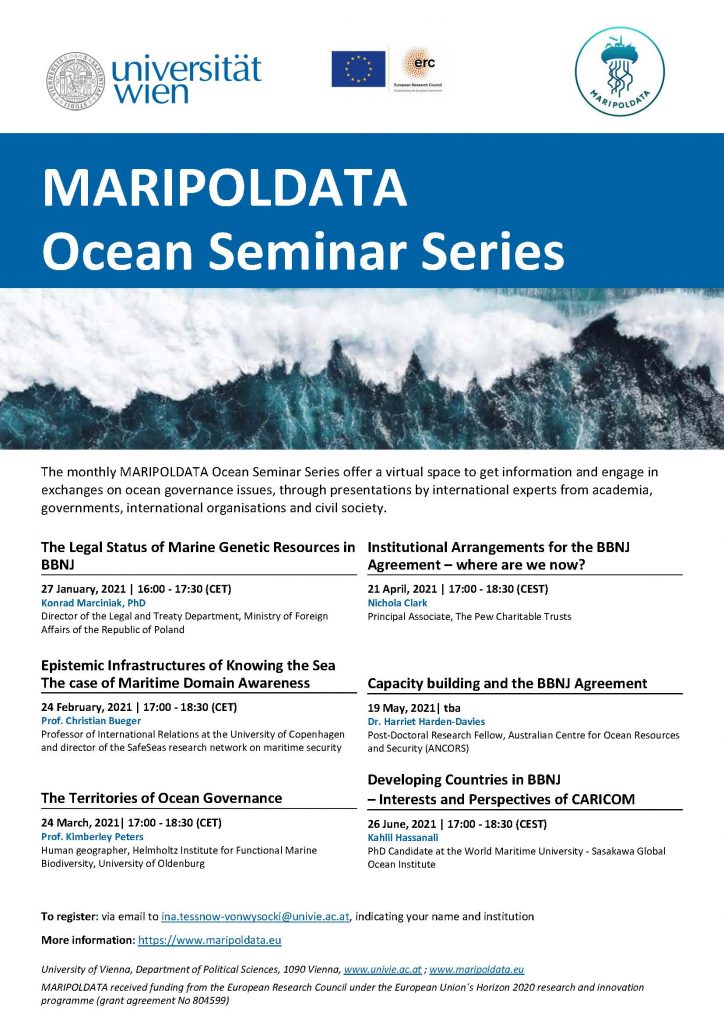On the 26th and 27th of May, I had the pleasure to attend the 2nd expert meeting of the EU and China on maritime security organized by the European External Action Service in collaboration with the National Institute for South CHina Sea Studies.

The first session centered on different interpretations of the Indo-Pacific as a recent regional construct and how the EU is planning to engage with the region in the framework of its new Indo-Pacific strategy. The second session focused on the Indian Ocean and the challenges linked to blue crime. In my contribution to this session, I stressed the importance of taking a holistic understanding and paying attention to the inter-linkages between blue crimes and the associated problem of institutional proliferation in the region. I also flagged climate change and submarine data cable protection as two vital future issues on the maritime security agenda, and new fields for EU-China collaboration.
The second day focused on the South China Sea and on identifying pathways for better collaboration in the area.

